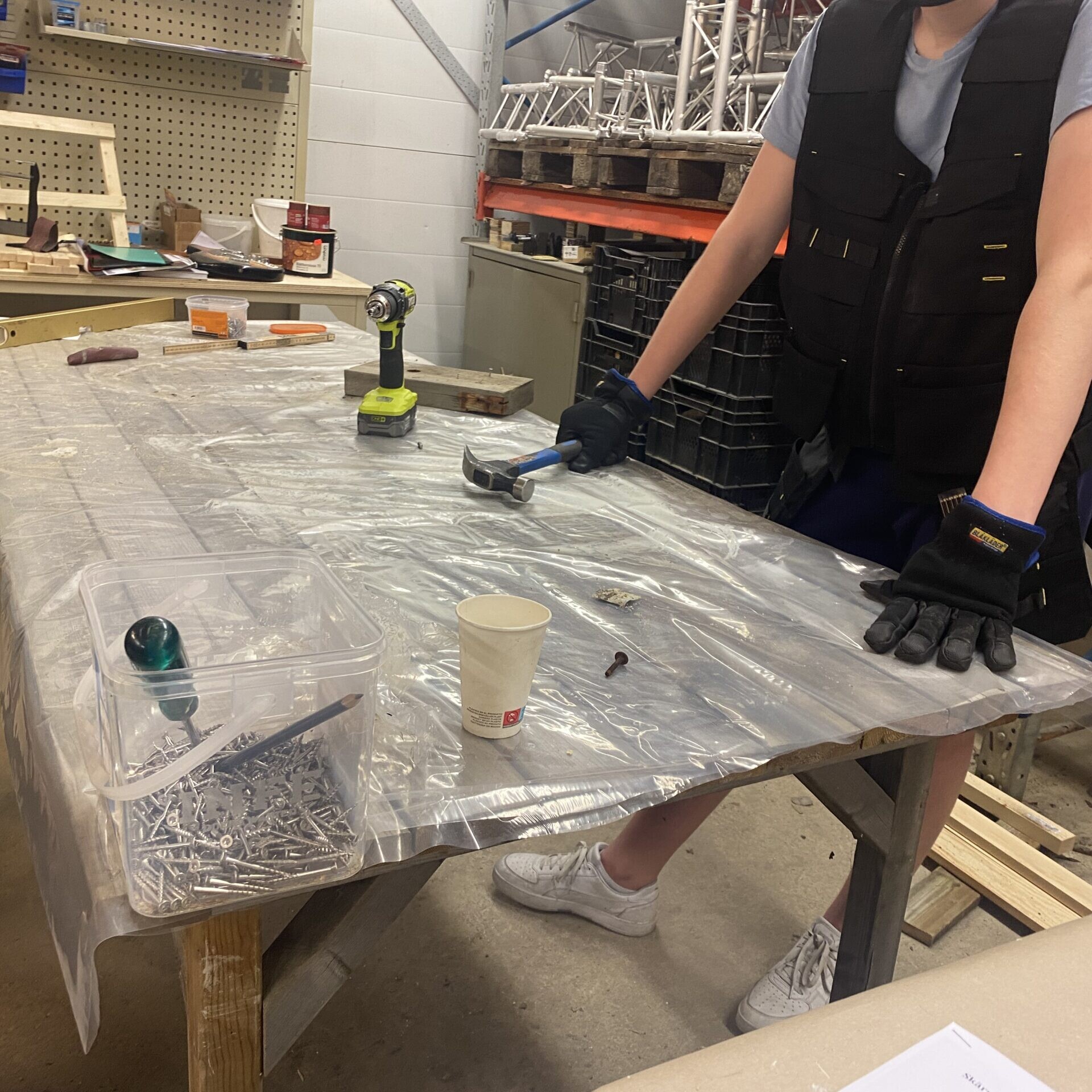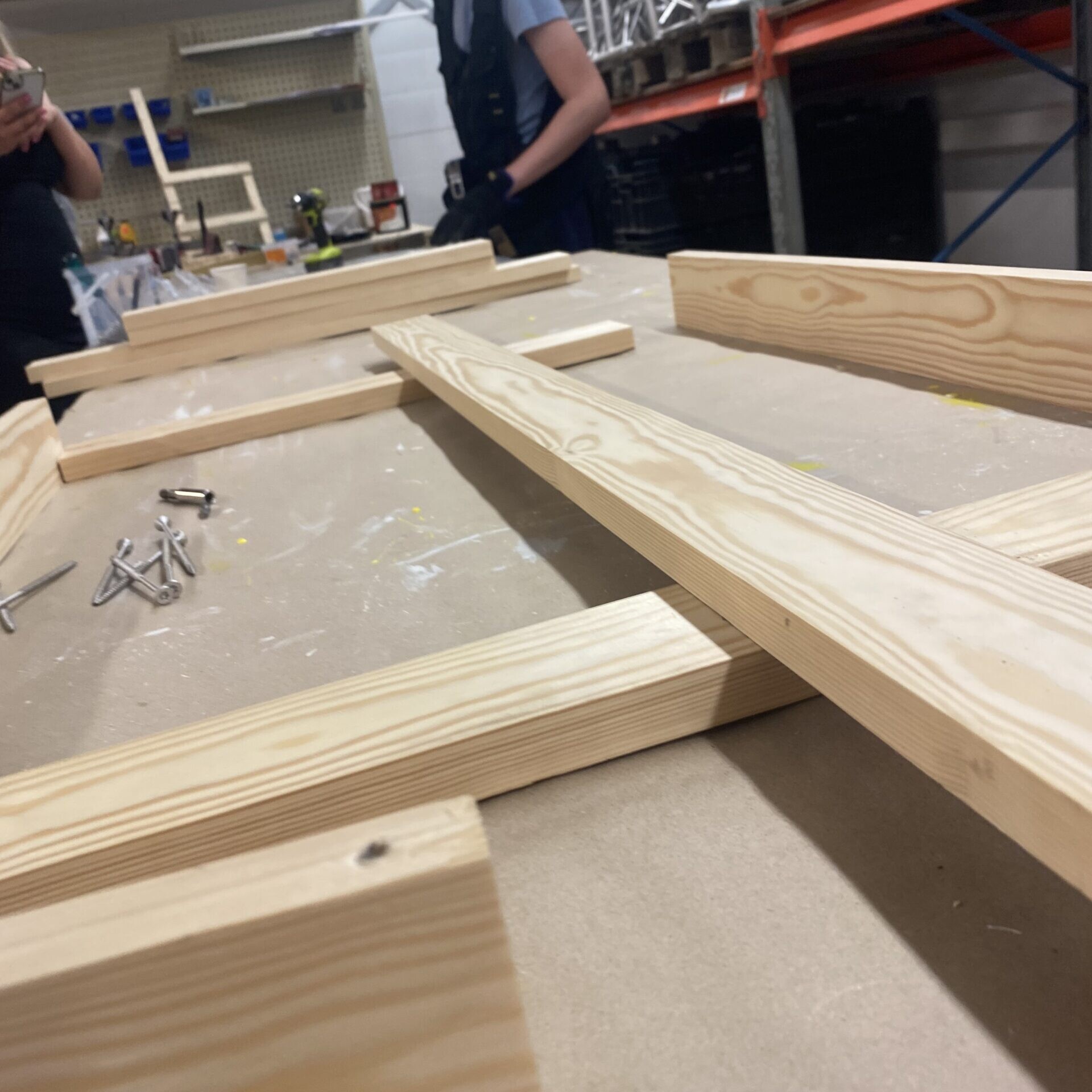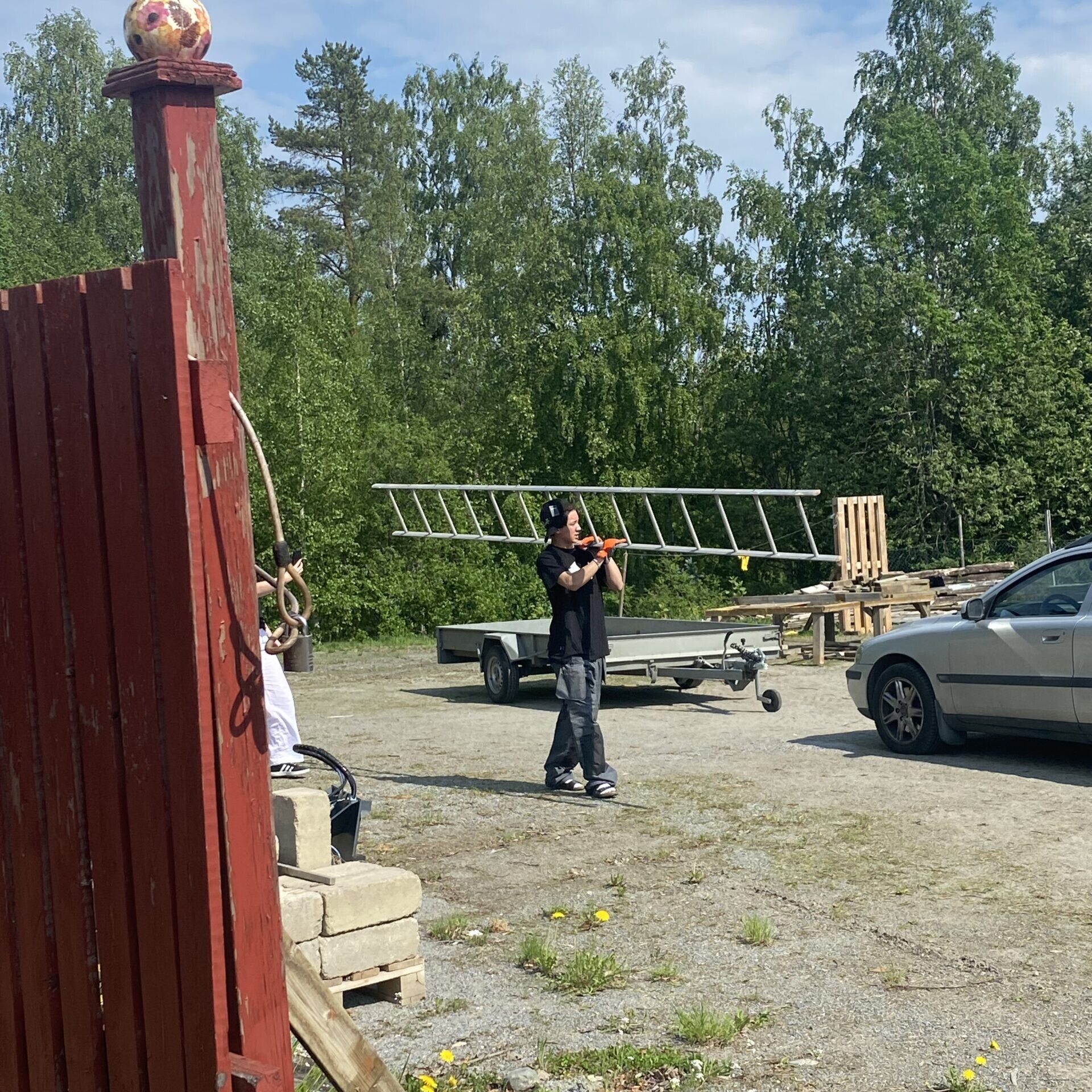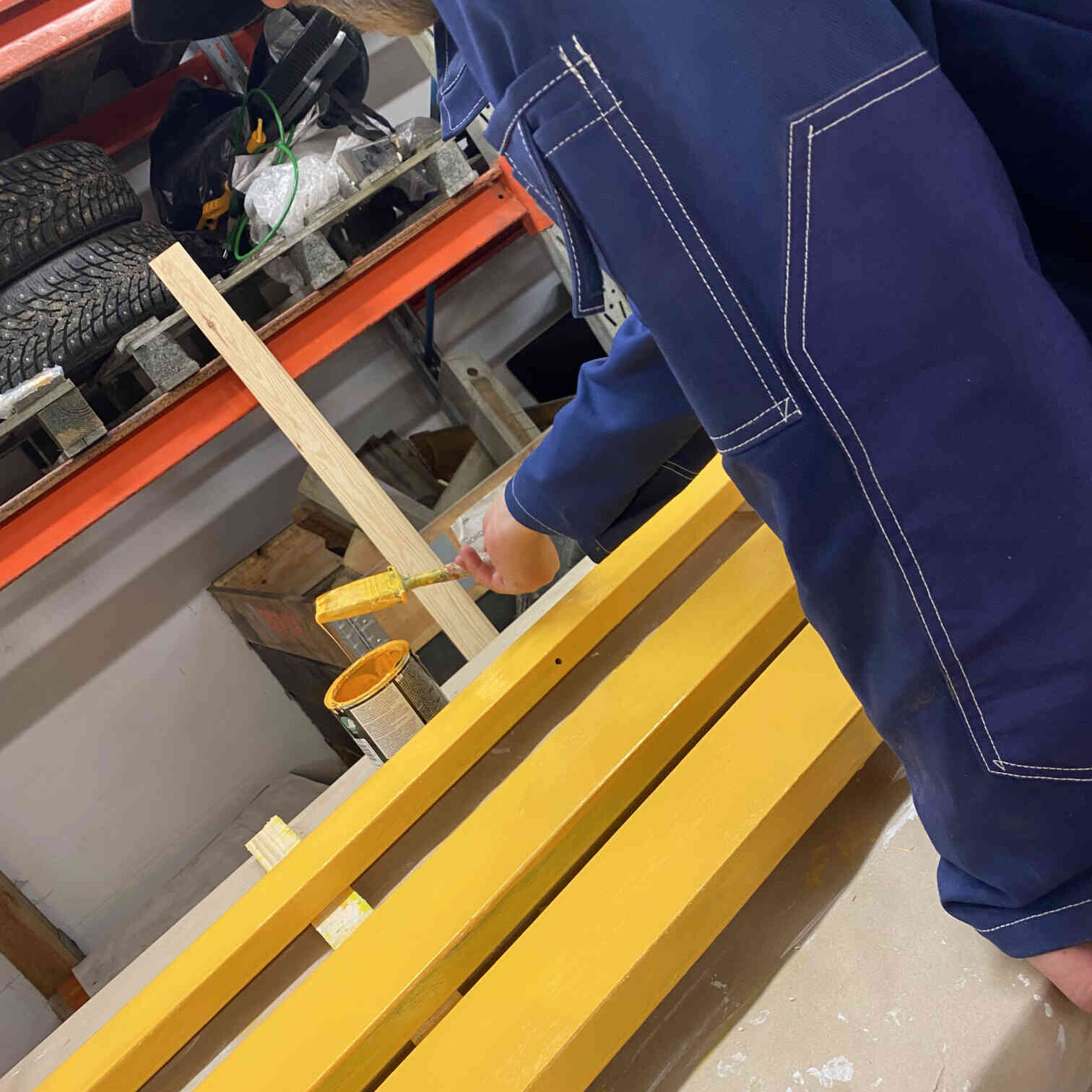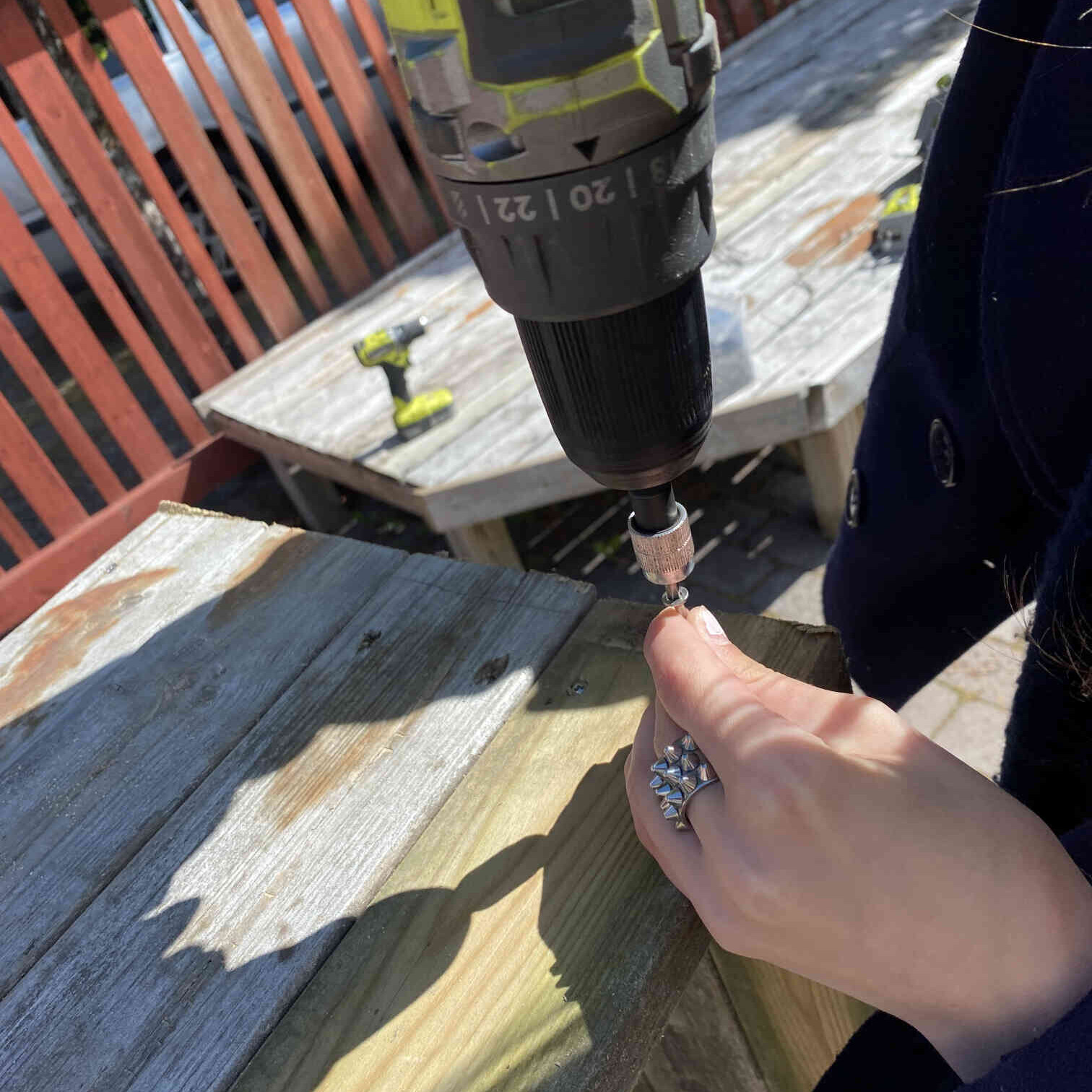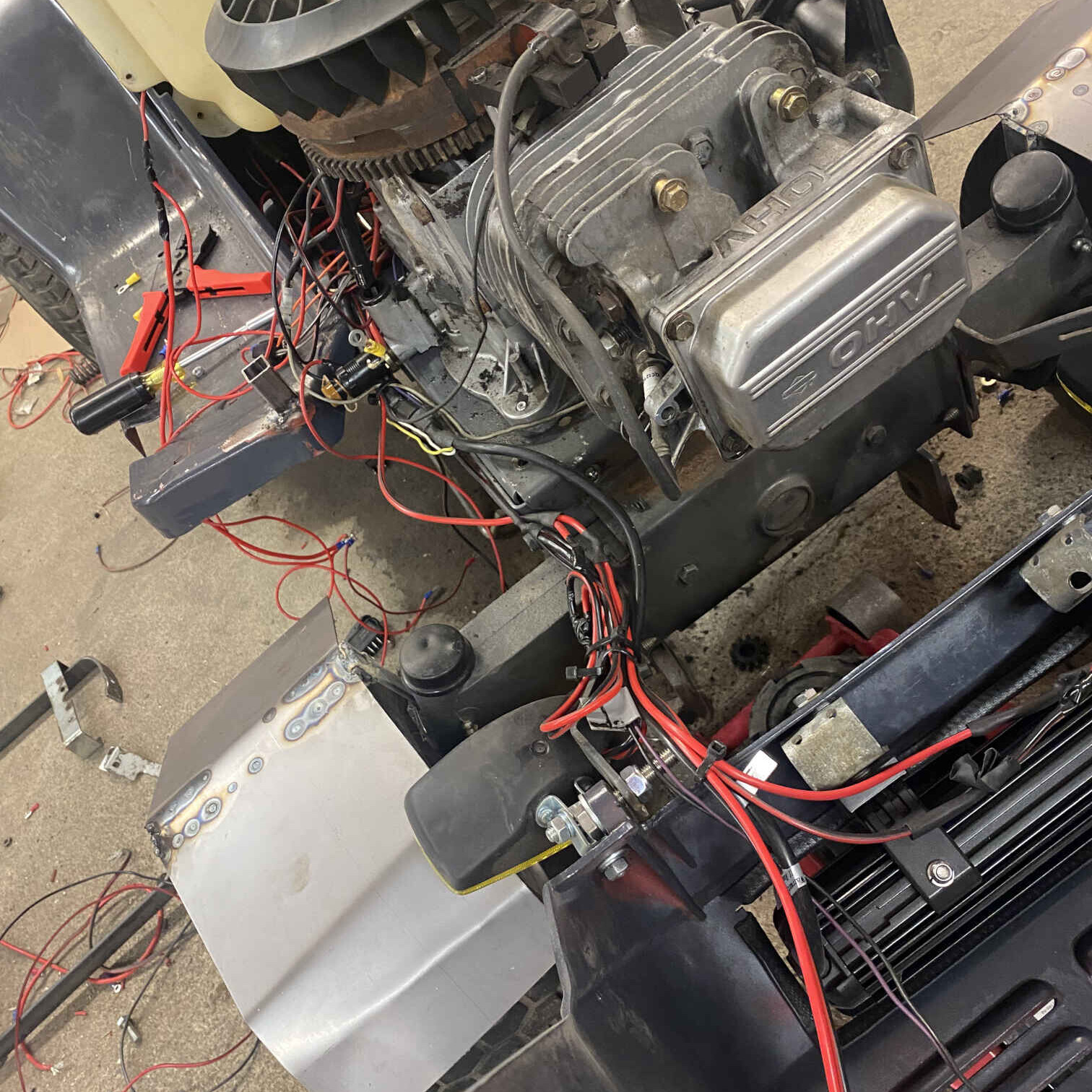Work experience Culture park
Try-on activity at Urkraft Culture park. Site visit and the opportunity to test various work steps within the wood/carpentry industry, mechanics and gardening/park. The Reality check is also an opportunity to reflect on interests, wishes and values, expectations and goals for the future world of life and work. The reality check mixes practical and theoretical information and experience.
Wood and Carpentry Industry – Together with a builder from the construction industry, the students must plan for and build a bench or a chair that can then be used in the public space.
Mechanic – Together with a mechanic, the students must take apart and reassemble a moped engine.
Gardening – Together with a gardener, the students must plan for a small garden in the park based on which plants work in different places in the garden.
The whole process is integrated with a career counsellor which will use methods of guidance before, during and after the session.
Learning outcomes
Additional learning outcomes
- Building self confidence
- Communication skills
- Entrepreneurial skills
Duration
Age group
Kind of activity
Contact
Country: Sweden
Contact person: Niklas Viklund
E-mail: niklas@urkraft.se
Implementation
Step-by-step
Planning:
Identify the specific topic for each workshop. For example, it could be “Build a garden bench” for for carpentry workshop, “create a small garden space” for the gardening workshop, and “Basic car/moped maintenance” for mechanics workshop.
Determine the target audience for each workshop depending on the topic and the level of knowledge you want to impart. (Important to consider the age groups)
Create a list of materials and tools needed for each workshop. Make sure you have enough equipment for all participants.
Premises and Resources:
Find a suitable place to hold the workshop. It can be a workshop, a garden area or another suitable place with enough space and the right equipment.
Ensure you have access to all necessary resources, including tools, materials and safety equipment for each workshop.
Involved professions
Wood and Carpentry Industry – Construction carpentry is a form of carpentry that focuses on construction, repair and installation of various types of wood products in the construction industry which requires skill, precision and knowledge of woodworking techniques and construction processes.
Mechanic – A mechanic is a professional who specializes in repairing, maintaining and servicing vehicles and other mechanical devices. The main job of the mechanic is to diagnose and solve problems with various types of vehicles, including cars, trucks, motorcycles, and sometimes also other machines such as garden machines or industrial plants.
Gardening – A gardener is a professional who specializes in the care and maintenance of gardens, green areas and landscaped areas. Their main task is to plan, design, plant and care for gardens to achieve the desired aesthetics, functionality and health of the plants.
Preparation & follow-up
Workshop Implementation:
Begin each workshop with a brief introduction to the topic and an overview of the day’s agenda.
Demonstrate step by step how to perform the various tasks or projects.
Give students enough time and space to practice and complete the tasks themselves or work in a small group.
Be available to answer questions and provide help and guidance when needed.
Development and Follow-up:
Collect feedback from participants after each workshop to evaluate what worked well and what can be improved.
Use the feedback to improve and develop future workshops.
By following these steps, you can create and run rewarding carpentry, gardening, and mechanics workshops that help participants learn new skills and experience a sense of accomplishment.
Additional resources
Documents
Evaluation
Before and after surveys for the students.
Feedback form – could be digital, use of a mentometer for example
Project evaluation – Use the feedback to improve and develop future workshops.
Company feedback – include the SME:s into the process and have them evaluate the workshop.
Feedback from industry experts is important to ensure the workshop aligns with current market
requirements.

